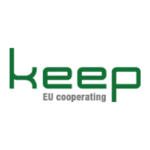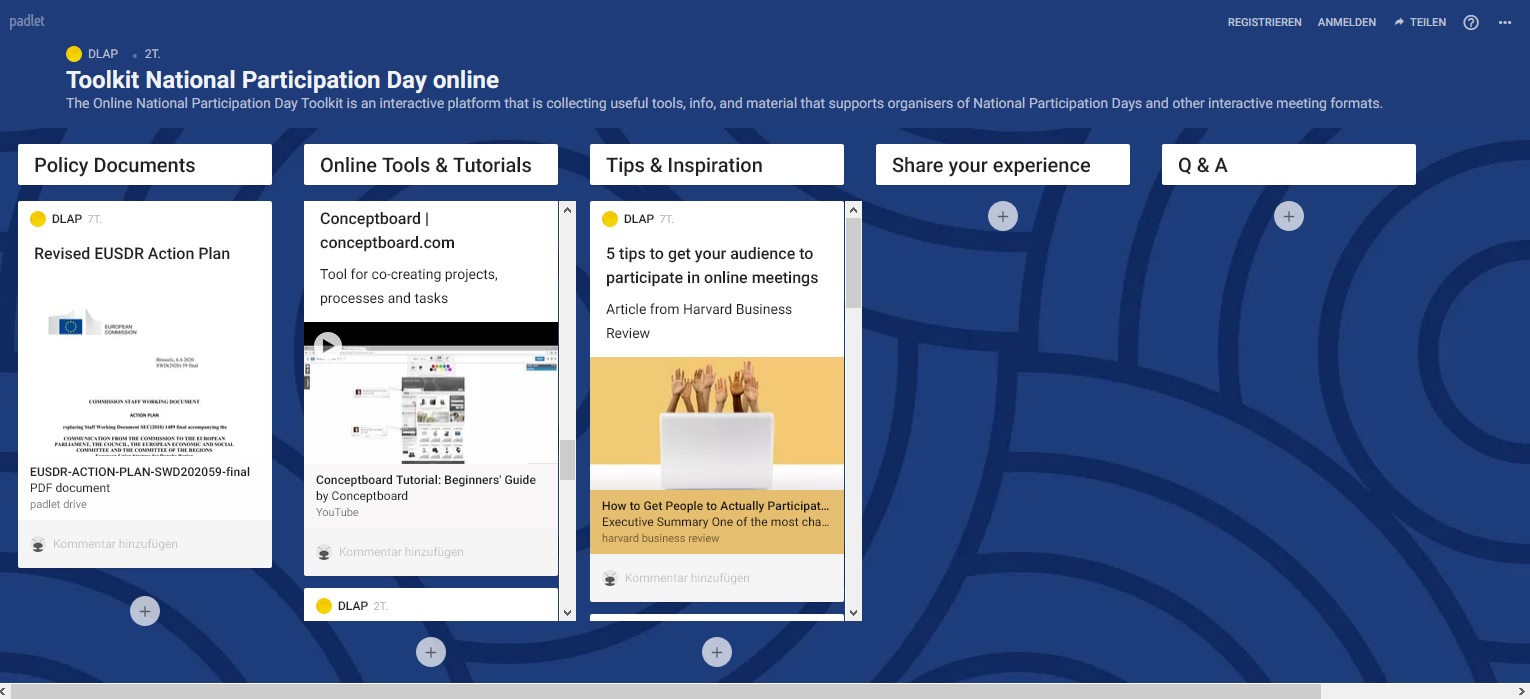Planning the post-pandemic socio-economic recovery, launching a profound shift towards green development to deal with the impacts of climate change, EU programming post-2020, and the new Action Plan of the Danube Strategy require broad support to be successful. This is, why it is all the more important to involve representatives from cities and regions, civil society, business, and academia in the decision-making process for the next steps to take.
However, in times of limited options to gather and exchange, providing platforms for dialogue seems to be even more challenging than ever. Against this background, Priority Area 10 “Institutional Capacity and Cooperation” and the Danube Civil Society Forum addressed interactive online communication and online National Participation Days in the meeting of the Danube Local Actors Platform on 15 and 16 June 2020.
Why keeping up the dialogue is essential
Particularly in times of shrinking civic space, it is key to find ways to reverse the trend and develop opportunities to formulate joint positions, address needs, and co-create solutions to the manifold challenges that we are facing. With the recent publication of the new Action Plan for the Danube Strategy, National Coordinators, Priority Area Coordinators, and Steering Group members need to engage with stakeholders in the region. This is essential in order to figure out how to best implement the Action Plan, how the actions and the macro-regional framework contribute to solutions tackling global, European, macro-regional, and local challenges, and what it needs to make best use of this potential.
Yet, engaging with stakeholders also requires a set of capacities. Meaningful stakeholder engagement needs an inclusive language, responsive, transparent and accountable procedures, and traceable results. This seems to become even more challenging, when it comes to online communication. Additionally, online communication also requires the technical knowledge on top of the communication and procedural skills.
Challenges & Opportunities of online meetings
In a time where one one-sided online presentation follows another, we are easily falling into an online meeting “fatigue” that leaves little motivation to get active, let alone interactive. Thus, organisers need to consider carefully what they expect from their participants and think of ways to get their inputs.
Breaking the ice
Building personal connections is certainly one of the bigger challenges in online meetings. At the same time, building trust and feeling comfortable to speak up in a group is essential for a lively discourse. While physical events offer the opportunity to network alongside, digital events have far more limits in this regard. Hence, organisers need to consider how to create an atmosphere of trust and comfort to get their participants to engage.
Creating an enabling framework for dialogue
Facilitating a fluent dialogue between participants can be challenging at times. Online meetings have a different dynamic compared to physical meetings. Organisers need to acknowledge that online discussions might need respective guidance in order to help participants to cope with rigid timeframes for the discussion and structure the inputs.
Being appropriately equipped
The technical infrastructure and equipment is the basis for online communication. Organisers might not be able to influence whether or not participants have the appropriate equipment, but they might also need to think about it during the planning of a meeting. Against this background, organisers might think of ways to include participants with limited technical capacities in a different way.
On the other hand, online meetings can also offer possibilities to reach out to stakeholders in a way physical meetings might not allow.
Lowering thresholds for meetings
Online meetings are lowering costs for both organisers and participants. This allows reaching out to a larger audience. Thus, online meetings might attract new stakeholders as the financial and time-related costs of participating in a meeting are far lower. At the same time, online meetings can be scheduled in a shorter period of time compared to physical meetings.
Experimenting with a variety of communication formats
Online meetings are also a catalyst to experiment with different forms of collecting inputs and feedback. This might also inspire the use of a broader variety of different communication tools not only during the pandemic, but also beyond.
Bringing more focus to the debate
Since online meetings tend to be shorter, but can be organised more frequently, this could also be an opportunity to organise meetings with a clear thematic focus. This allows more comprehensive discussions and preparation for the participants to engage.
Technical solutions
The meeting of the Danube Local Actors Platform offered the opportunity to discuss different online tools for interactive online meetings. Here is a selection of tools that could help engage participants in a meeting.
| Survey & Polls | Result-oriented collaboration | Quizz & Playful learning |
|
|
Online National Participation Day Toolkit
 If National Coordinators, civil society organisations, Steering Group members or other stakeholders are interested in organising an online Participation Day, please get in touch with the coordination team of Priority Area 10 “Institutional Capacity and Cooperation” and/or the Danube Civil Society Forum.
If National Coordinators, civil society organisations, Steering Group members or other stakeholders are interested in organising an online Participation Day, please get in touch with the coordination team of Priority Area 10 “Institutional Capacity and Cooperation” and/or the Danube Civil Society Forum.
Furthermore, we recently established the Online National Participation Day Toolkit that provides policy documents, tutorials for online tools and other tips for interactive online meetings. The tool also offers the opportunity to ask questions or share your experiences or share further interesting material with the community.
Please check out the Online National Participation Day Toolkit at: https://padlet.com/DLAP/NaPaDatoolkit




